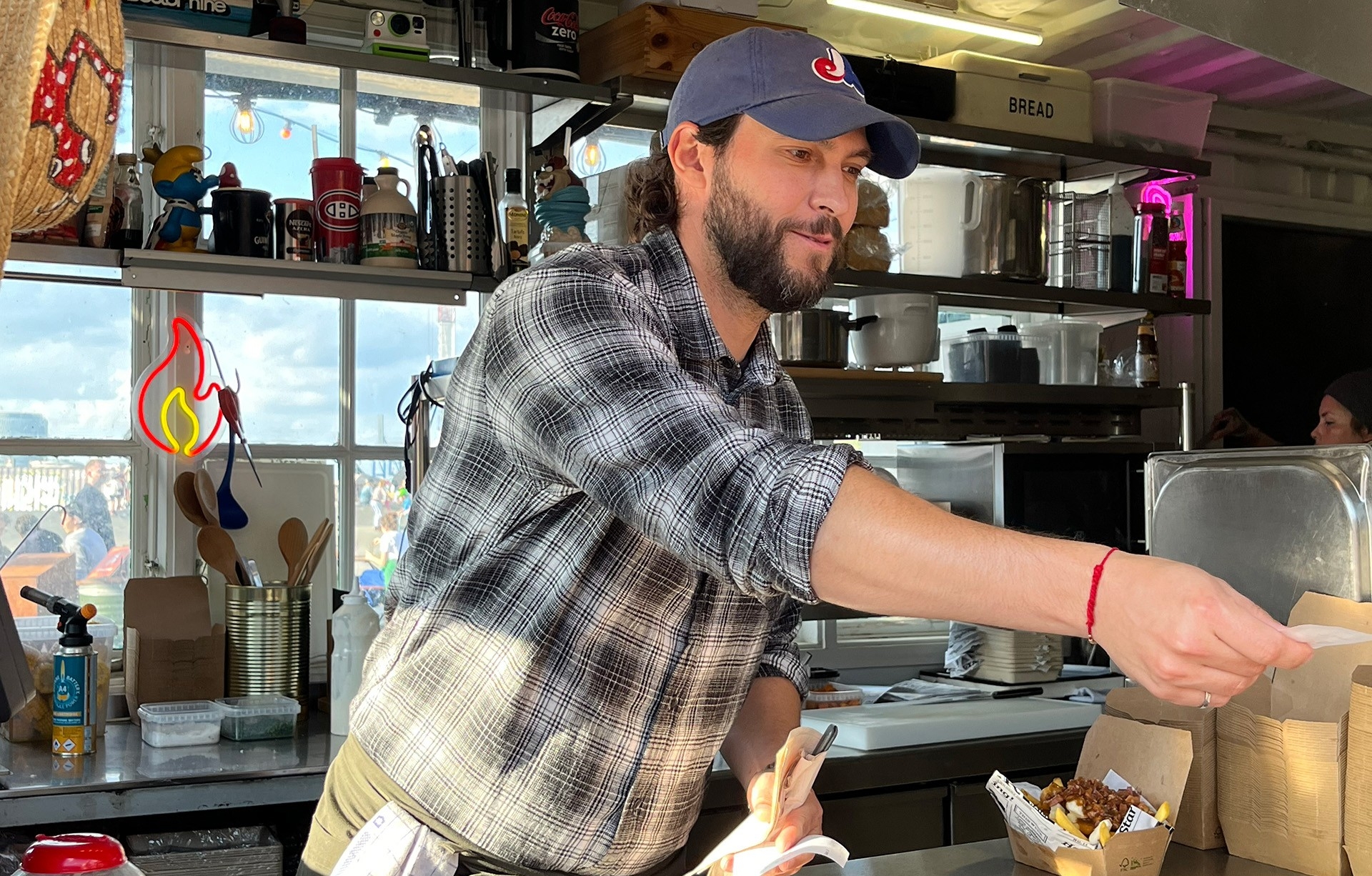By March 2022, Ferreira longed to travel again. He figured he’d easily find an engineering contract in Copenhagen thanks to his network. But when that didn’t happen, he took part-time work at Keyser Social, a popular Asian restaurant, to help pay expenses. Before long, he fell in love with the chef, Shirley Kvistgaard, an American who had moved to Copenhagen to finish her studies. Then came the discussion to open their own restaurant.
“You’ve got to love what you do, and why not do it with someone you love?” says Ferreira.
The couple applied for a spot at Reffen, a food market that sprawls across Refshaleøen, a former industrial island. There, entrepreneurs serve up multicultural street food out of converted shipping containers. The market, which sees about a million visitors each year, also hosts artists’ workshops, free concerts and festivals.
In March 2024, Ferreira and Kvistgaard debuted Yankees & Canucks, featuring North American favourites topped with homemade sauces and maple syrup, including short ribs, roasted corn, sweet potato fries, mac and cheese, smoked brisket sandwich, American-style pancakes and, of course, poutine.
When Kvistgaard was developing the poutine recipe, Ferreira served as the official taste taster, determining if it was authentic. He greets customers wearing a vintage Montreal Expos baseball cap, and leaning against the window is a foam Montreal Canadiens finger. The underside of the serving counter flips up to reveal a collection of American and Canadian license plates, including one from Quebec.
“Again, my engineering and construction experience came in handy; I like to be hands-on, so I re-did the floor. We also had to paint, and make everything new, and it was fun. Shirley is the master chef and the genius behind the food. I’m the face and admin part of the business.”
The couple works six days a week and they’ve already built up a cult following. Last summer, they were featured in a television mini documentary and their Rib Dog won People’s Choice in Europe’s Street Food Awards.
“I didn’t think there were that many Canadians here, but they all come out, and they’e like, ‘Poutine, poutine, poutine!’ he says. “The first question I always get is if we have real cheese curds.”
After trying to get them made locally, he now imports Quebec cheese curds through a company in Germany.
During summer months, the couple lives in a 1992 Kon-Tiki Express, a British-made RV. They plan to travel to Portugal in the off-season.
“I think we’re doing well. We’re doing something right,” says Ferreira.
 Daniel Ferreira serves up Canadian and American fare at his food stall in Copenhagen. | Photo credit: Wendy Helfenbaum
Daniel Ferreira serves up Canadian and American fare at his food stall in Copenhagen. | Photo credit: Wendy Helfenbaum
 “I think we’re doing well. We’re doing something right,” says Ferreira of bringing classic North American flavours to Europe. | Photo credit: Wendy Helfenbaum
“I think we’re doing well. We’re doing something right,” says Ferreira of bringing classic North American flavours to Europe. | Photo credit: Wendy Helfenbaum